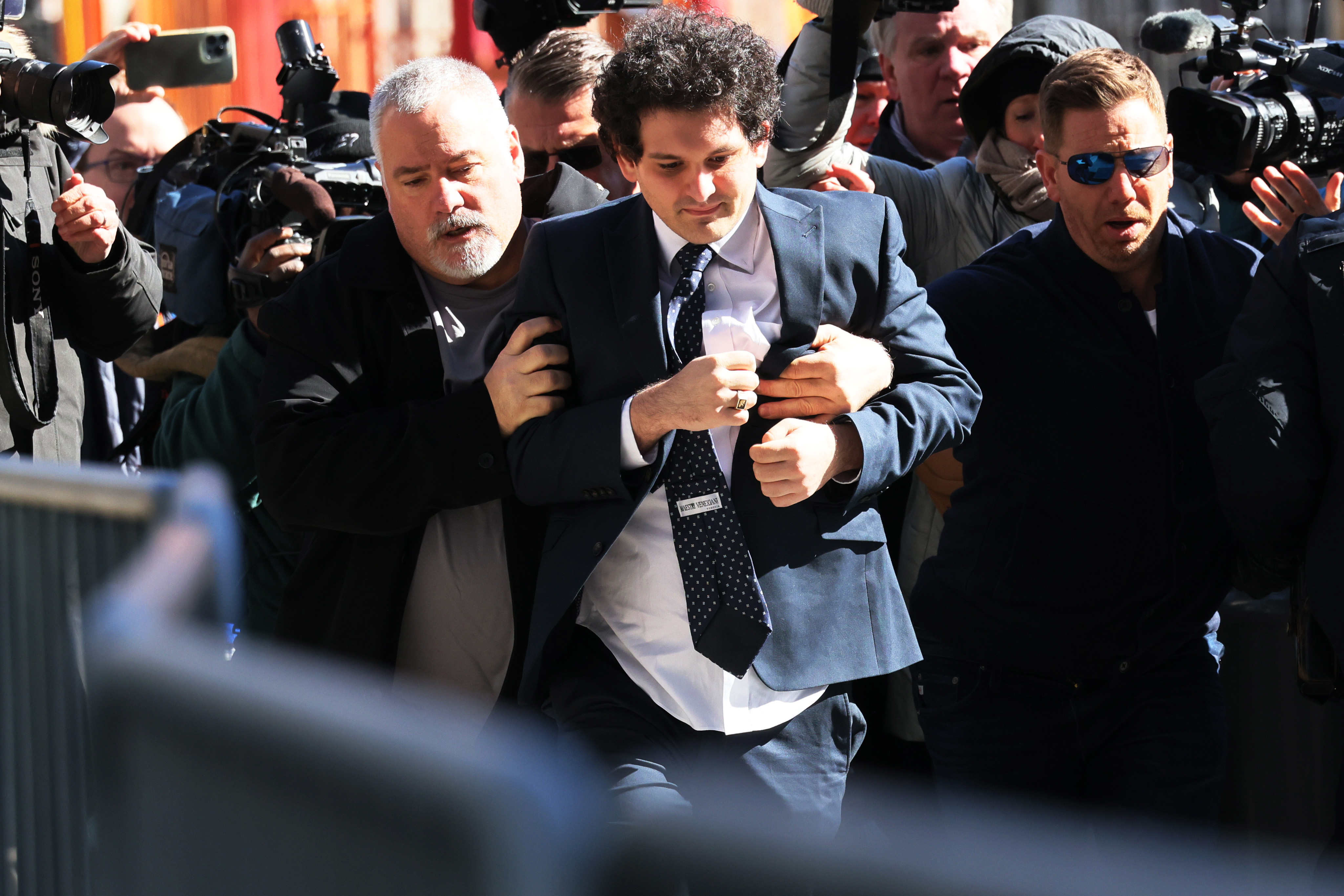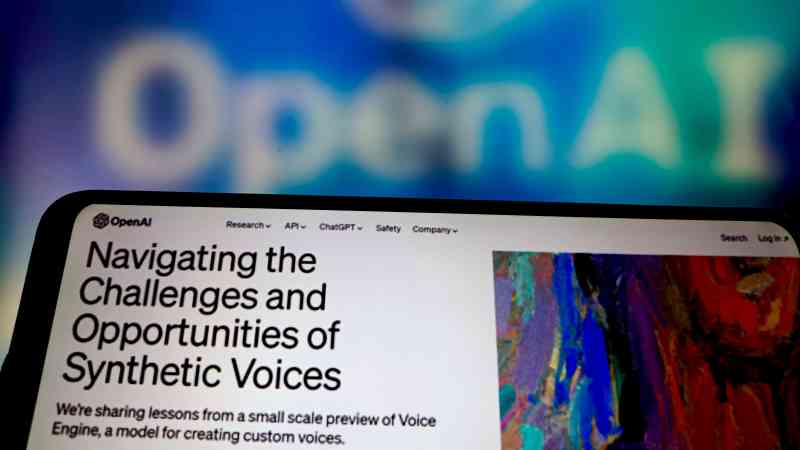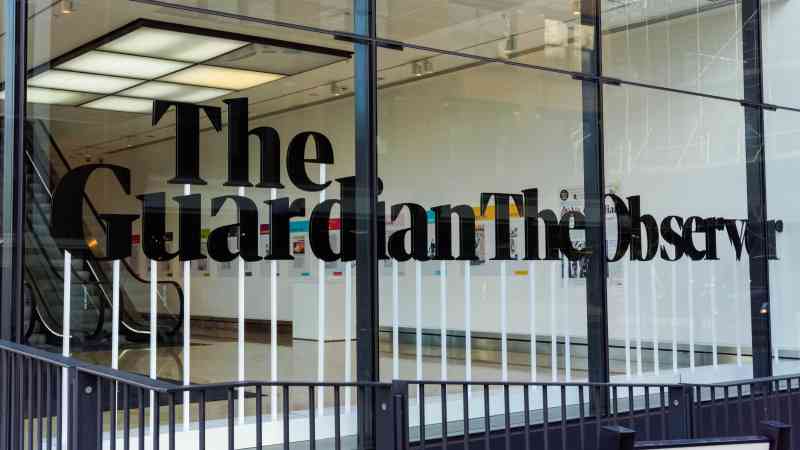Why Chris Dixon is betting on crypto — not AI
Chris Dixon does not pull his punches. “I think I’ve been excommunicated from the mainstream tech world.”
As that world tunes its sights and capital on the future of artificial intelligence, the Andreessen Horowitz partner is looking in another direction, doubling down on crypto, the blockchain and Web3, the new iteration of the internet.
Society has a chance, he argues in his new book, to create a free and fairer internet, removed from the shackles of Big Tech, shackles that could tighten in the new era of AI.
Making the case for crypto is not a popular one. It is now far less cool than it was before generative AI walked into town and its reputation has been dragged through the mud, chiefly because of the high-profile fraud perpetrated by Sam Bankman-Fried at FTX, the crypto exchange. Then Changpeng Zhao, another of the world’s crypto barons, pleaded guilty to breaking criminal laws. Binance, his company, reached a settlement with prosecutors in the United States, including on charges that it was being used to funnel money to Isis, al-Qaeda, Hamas, cyberattackers, Iran and other sanctioned entities.
Crypto is now a harder sell to politicians and a harder sell to consumers, who understandably are afraid of investing in what remains a wild west. When Dixon talks to Wall Street bankers, they, too, tend to be cynical: “Crypto is all magic beans and rat poison. They think these people seem crazy and they’re interested in speculation, but no, there is actually a different movement. I want people to understand why people like me think it is worth working on.”
Unlike his peers at Sequoia and the Ontario Teachers’ Pension Plan, who were burnt financially and reputationally by their investments in FTX, Andreesen did not buy in. It had not been a difficult decision, Dixon said, because alarm bells rang when FTX pitched its wares to the firm.
“When FTX came to us and said ‘We’re in the Bahamas, we’re not audited’ and all these other things, to me they were red flags”. As Bankman-Fried’s celebrity rose, he did not air his concerns publicly. “We’re a venture capital firm and part of our philosophy is we don’t go out and criticise entrepreneurs even if we think something’s wrong. And so I stayed silent on some of these topics.”
His policy team came to the same conclusion. “Stay away from FTX.” He will not criticise those companies that did invest, acknowledging only that there was a sense of FOMO (fear of missing out) among the venture community.
Instead, he thinks crypto and its underlying technology can have a positive effect. “It’s not a mainstream view at all, but someone needs to tell a positive story here. I think there will be a new wave that balances the power of big companies with small companies. Blockchains are a very important issue because they level the playing field.”

Andreessen Horowitz, otherwise known as A16z, has long taken an interest in web3 and decentralised technology and is a big investor in the space.
In contrast, Dixon lays blow after blow on Alphabet, Apple, Amazon and Meta in his book, accusing Big Tech of stifling innovation, taxing creativity and concentrating money and power in the hands of the few. His argument feels like an unusual stance from someone whose fund made a fortune as an early investor in Facebook, yet Dixon argues that this is all part of the evolution of the web and that the present status quo is not intractable. “There is a chance to create the internet you want, not the internet you inherited.”
Ostracised he might be, but he is tech to his core. He sold his business Hunch, a product recommendation site, to eBay for $80 million in 2011. He has been an Andreesen partner since 2012 and was an early investor in Coinbase, Stripe and Pinterest.
“Part of what inspired me is I had a whole generation of entrepreneur friends who were just wiped out in 2011 by Twitter or Facebook,” referencing when the social networks revoked access for some companies to their software interface. “It was like if Apple just shut down the App Store.” This showed him early on how much power these companies have over the internet and developers.
He criticises the deal we have all made with these corporations to use their services, namely “widespread user surveillance” and “a lack of control” over what we see and watch. His book paints a picture of a world wide web underpinned by decentralised blockchain, uncontrolled by one entity, with “software as an art form, with the internet as its canvas”.
As a blockchain evangelical running Andreessen Horowitz’s crypto fund, Dixon idealises an internet future in a world free from the power of Big Tech players that at present “get to rewrite the rules of the entire game for their sole benefit”. He believes that the power of the technology powerhouses will continue if AI develops in its current form. “The technology industry is 100 per cent focused on AI right now. I get it, I used to be an engineer, it’s a miracle technology. But as someone who cares about the internet, I worry it’s just going to reinforce all the centralisation issues.
“AI is a technology that rewards massive amounts of capital and computer data. It’s aligned with existing business models; if you’re Microsoft, this is great. You can sell more databases and those products will be good. But it’s not going to be disruptive in the strict sense.”
While the idea of a new internet order sounds utopian, how plausible is it? The book certainly has some influential backers, endorsed by Sam Altman, the chief executive of OpenAI and today’s golden boy of Silicon Valley, as well as by Bob Iger, the chief executive of Disney.
The closest existing example Dixon gives is that of Eve Online, the computer game ecosystem whose players trade across a fictional galaxy and is building “a decentralised peer-to-peer economy”.
There is no straightforward path. Just like a game, he wants to see rules in place, “referees and policymakers”, who can support the entrepreneurs building the new wave of the internet. In his opinion, as the blockchain and start-ups get better, the web will begin to look very different in the future.
Read Write Own, Building the Next Era of the Internet, by Chris Dixon is published by Cornerstone Press, a division of Penguin RandomHouse.






